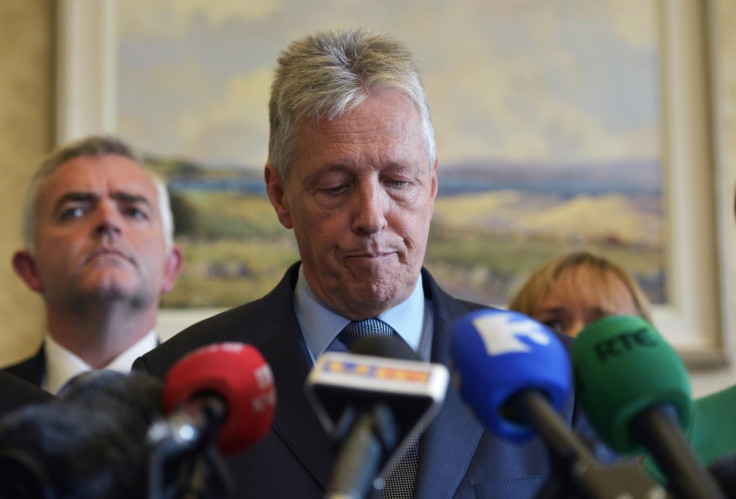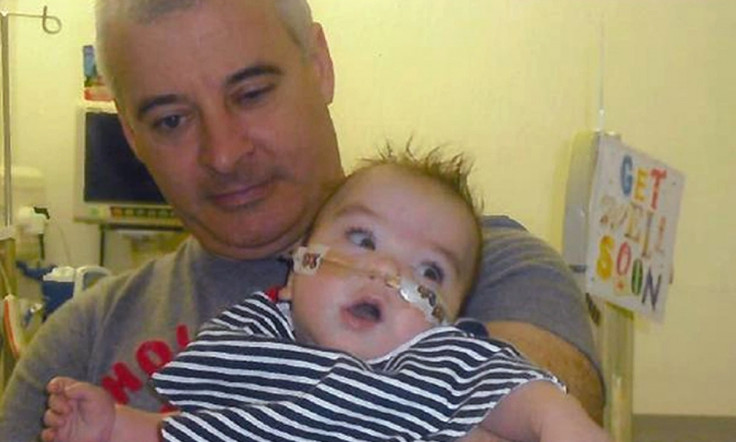IRA murders, resignations and political chaos proves peace in Northern Ireland is an illusion

To outsiders, the current crisis in the Northern Ireland Executive is a nightmare plot twist in what should have been a fairy tale where warring factions came together, kissed and made up, and lived happily ever after.
Replace the "kissed and made up" bit with "signed a peace treaty" and you basically have the story of Northern Ireland, a country rocked by a 30-year conflict before the signing of the Good Friday Agreement in 1998, a milestone on the path to ending the IRA's armed campaign.
To natives, though, Stormont's theatrics are like a game of Jenga without the suspense. The Good Friday Agreement generation – those of us who were children when it was signed – have already watched the government collapse four times. Like death and taxes, an unstable government and warring politicians are things you can be certain about when it comes to life in Northern Ireland.
My generation were told that we would be the first to enjoy peace in decades. But just because we're not at war any more doesn't mean the shadow of the gunman has left the room
The latest crisis was triggered by the murder of Republican ex-prisoner Kevin McGuigan in Belfast in August. McGuigan, a former IRA volunteer, was believed by the Provisional IRA to have been behind the murder of Jock Davison in May.
Davison, at one time a senior IRA commander, was a notorious figure, best known for his alleged involvement in the 2005 murder of Robert McCartney near a Belfast pub. A key supporter of Sinn Fein, Davison's murder came as a shock, happening as it did years after the IRA had supposedly laid down its guns.
One thing that was understood, though, was that revenge would be had. If the deed went unpunished, so local commentators whispered, it could have been interpreted as "open season" on former members of the Provisional IRA, many of whom now walk the corridors of Stormont in an official capacity.
The week before McGuigan was shot dead outside his home, a group calling itself Action Against Drugs – similar to a cover name used by the IRA in the 1990's, Direct Action Against Drugs, used in instances when they shot and killed local drug dealers – had issued a statement to a local newspaper, The Irish News, promising revenge for Davison's murder.

Confirmation by the PSNI's chief constable that members of the Provisional IRA were involved in the shooting of McGuigan was shocking in the sense that it was honest; victims had long come to expect the institutions to hide uncomfortable truths in the name of political expediency, such as the long-standing question about Gerry Adams's alleged membership of the IRA.
For the Unionist parties at Stormont, though, it has created a situation where they have been forced to publicly acknowledge that the IRA has not gone away. After years of promising never to sit "with terrorists in government", the Democratic Unionist Party (DUP) finally joined a power-sharing coalition with Sinn Fein in 2007.
This was a massive U-turn as the pre-condition to any power-sharing agreement was that the IRA, as an organisation, was dead and gone, its weapons buried and fully decommissioned. Certainly, that was the tale spun to the NI electorate at the time.
When it comes to Stormont and the Peace Process, though, it seems there are two versions of the truth: the truth as known to politicians and the truth as it is understood by the public. The official narrative around the IRA decommissioning process was every weapon had been put beyond use and the organisation no longer existed. Anyone who disagreed with this narrative was met with eye-rolls and dismissed as conspiracy theorists.
In 2005, General John de Chastelain, the head of the body that oversaw the decommissioning of the IRA's arms, told a press conference: "We are satisfied that the arms decommissioned represent the totality of the IRA's arsenal."
Two months before, we had the announcement by Sinn Fein's Seanna Walsh that the IRA had formally ended its armed campaign. Let's consider semantics here for a second, though: does ending a campaign equal "going away"? Not necessarily. But the public was allowed to think this. Walsh's statement paved the way for the power-sharing arrangement between Sinn Fein and the DUP two years later.
As much as the main parties are collectively pointing the finger at each other over the current crisis, much of the blame can be traced back to the Good Friday Agreement and the dark arts of diplomacy that have kept it in place since. With the so-called "On the Runs" scandal emerging into the spotlight, it seems the British government is prepared to go to any lengths to keep the Stormont administration in place, even if it means undermining the justice system.
That's why the history of Northern Ireland's government is just one crisis after another. Peace without justice is not really peace but an unfair settlement, the kind that led to the civil rights marches of the late 1960's in which young Catholics, like my mother, protested the Stormont regime and its favouritism of the Protestant community.
With the signing of the Good Friday Agreement, my generation, the children and grandchildren of the civil rights protesters were told we would be the first to enjoy peace in decades. But just because we're not at war any more doesn't mean the shadow of the gunman has left the room.
Lyra McKee is a freelance journalist based in Belfast. Follow her on Twitter: @LyraMcKee.
© Copyright IBTimes 2025. All rights reserved.






















